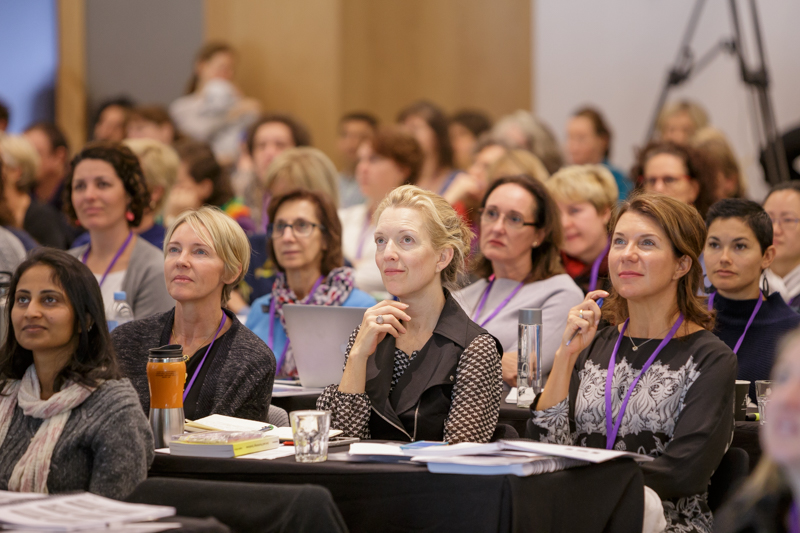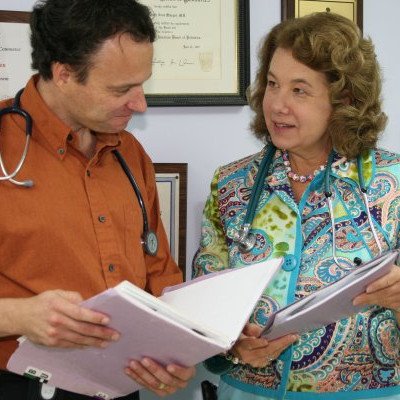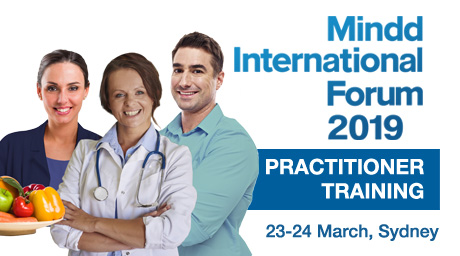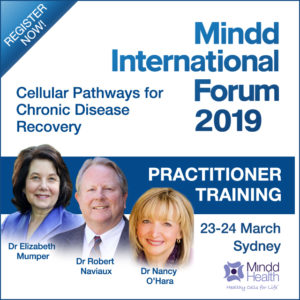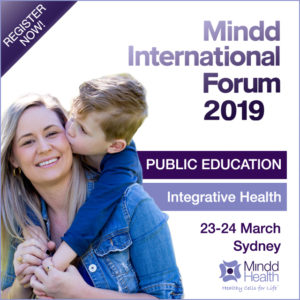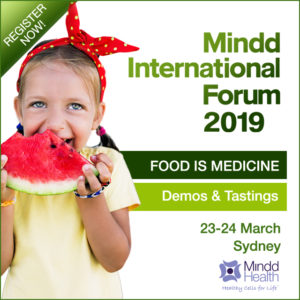Dr Elizabeth Mumper will present with her colleagues Dr Nancy O’Hara and Dr Robert Naviaux at the 2019 Mindd International Forum.
Dr Elizabeth Mumper
Dr Mumper is president and CEO of the Rimland Center for Integrative Medicine in Virginia USA, a practice devoted to the care of children with neurodevelopmental problems. She has been the Medical Director of the Autism Research Institute for five years, and an international lecturer, mentor, author of five peer-reviewed articles in medical literature.
The Presentations at The Mindd International Forum 2019 are not to be missed!
Dr Elizabeth Mumper discusses the forthcoming Mindd Forum Presentations and Masterclasses…
Can You Tell Us About Your Co-Presenters and the Masterclass Themes at the Forum?
I’ll be presenting together with Dr Nancy O’Hara and Dr Robert Naviaux.
Nancy is one of my longest-term colleagues and co-lecturers, and Dr Bob Naviaux is one of the most important and impressive mitochondrial scientists and geneticists in the world. We’re going to be introducing Dr Naviaux’s groundbreaking work on cellular defence mechanisms and the healing cycle of the cell, and weave this cutting-edge research into clinical applications.
One of Dr Naviaux’s concepts is that, as physicians and others interested in treating chronic illness, we really need to focus on promoting health, not just combating disease – and certainly not just giving a prescription for a symptom. This is one of the things that Dr O’Hara and I will be focusing on in the upcoming Mindd Forum.
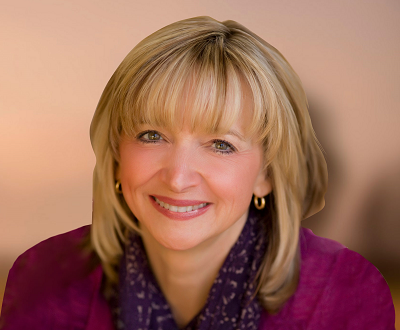
Dr Nancy O’Hara
Exploring Cellular Healing Strategies
We’ll take practitioners and participants through a whole host of conditions and tie them together with cellular healing strategies. We want to give you really valuable clinical insights and specifics about how you can treat your patients.
Some new and exciting approaches to alopecia will also be addressed and we’ll be looking at specific cases (including a baby with cutaneous mastocytosis), following their treatment protocols and progress.
ADHD Treatments
Dr O’Hara is going to talk about kids with attention deficit problems and how we can use many, many types of therapeutic strategies in their treatment without prescribing a stimulant. She’ll also be taking you through her experiences and helpful discoveries in the treatment of Lyme disease.
Those are just some of the topics that we hope you’ll be excited to learn about at the Mindd Forum.
Tell us More about Dr Naviaux’s Research on the Healing Cycles
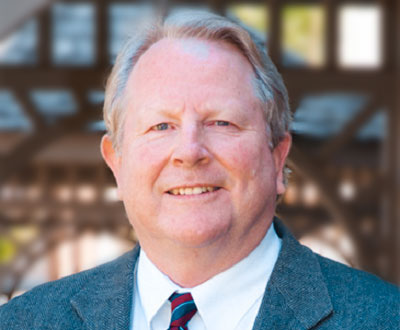
Dr Robert Naviaux
Dr Naviaux has undertaken groundbreaking research on how to promote healing and has found that if we can unblock the healing cycle, the cells naturally go to great lengths to maintain health. In this way, we can really make a huge difference in promoting health.
In medical school there was an emphasis on studying all the organs, so we took classes on the circulatory, respiratory or reproductive systems. However, in order to care for this generation of children, who are dealing with more chronic illness than ever, we really need to start looking at them on the cellular level. This is where Dr Naviaux’s expertise comes in.
Which Areas of Cellular Healing Will You be Focusing on at the Mindd Forum?
I’m a practicing clinician and have been specializing in pediatrics for over 35 years now. What you’re going to find at this upcoming Mindd Forum is that the principles we talk about can be applied to all of your patients, of all ages and who have a wide variety of chronic health problems. Whether it’s pain, chronic respiratory illness or chronic cognitive problems, all of those conditions can be understood in the context of cellular healing.
When you think about an inanimate object as, in a classic engineering approach to fixing a problem, you might go in and just fix the part that’s broken. Our bodies and our cellular physiology are much, much more complicated than that and there are inherent redundant mechanisms to lead each cell to heal if only the blocks to that healing are removed.
How Does the Rise in Childhood Chronic Disease affect Your Practice?
One of the things that you’ll find most shocking during my talks, is the increase in chronic disease in children. When I trained in pediatrics in the early 1980s, there were only a few examples of chronic illness. It was things like cancer or cystic fibrosis, but we did not see nearly the number of children with chronic conditions such as asthma, eczema and autism and others that are lifelong like diabetes.
The sad reality is that now as many as 50% of children have at least one type of chronic illness. Also, the tools we have which work well for treating acute illness are different from the tools you need when you’re dealing with kids who have chronic illnesses.
Are There any Uncommon or Misunderstood Conditions that will be Discussed in the Forum Masterclasses?
There may be those of you whose children have had a condition called PANDAS, which is Paediatric Autoimmune Neuropsychiatric Disease Associated with Strep, or PANS, which is a more inclusive term that includes an acute onset of a neuropsychiatric illness that might be caused by any number of factors.
Dr O’Hara is a national and international speaker on these topics and is working with the top researchers around the world to try to move this field forward. She’ll be presenting many very clinically relevant interventions for those of you who are practitioners or caretakers of children that have these problems.
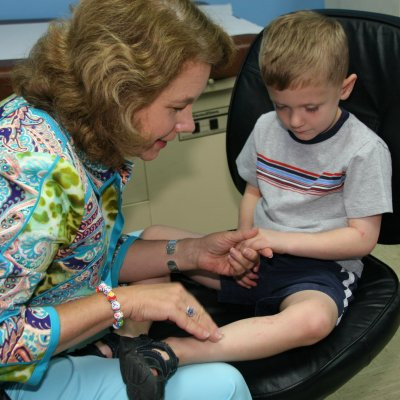
Dr Elizabeth Mumper at the Rimland Clinic
Separate Forum Classes are Presented for Both Practitioners AND Parents and the Public
To recap, for parents, teachers and/or therapists, we’ll take you through the basics of chronic disease in children. Dr Naviaux will tell you about utilizing cellular healing in order to unlock your child’s basic potential to heal and Dr O’Hara will give you some examples of applying it to some specific pediatric conditions that involve this amazing complexity and interaction between neurologic function and infectious disease. I really hope you’ll decide to come and discover these leading-edge insights.
Will Practitioners Attending Your Presentations be Able to Ask You Questions Afterwards?
Yes. One of the things I love about coming to Australia is the time I get to spend with clinicians in question and answer sessions.
Dr O’Hara and I always find that we learn so much from our Australian colleagues and the questions they ask which are so sophisticated and indicate so much insight.
Engagement for Livestreaming and In-Person Attendees
One of the things I hope you’ll enjoy, whether you’re attending the conference in person or whether you’re live streaming, is the opportunity to benefit from these Q&A sessions. They’re usually fun for everybody.
To see the full schedule of the 2019 Mindd Forum, please see here.



